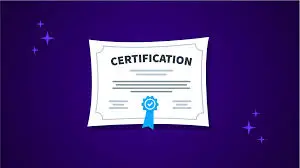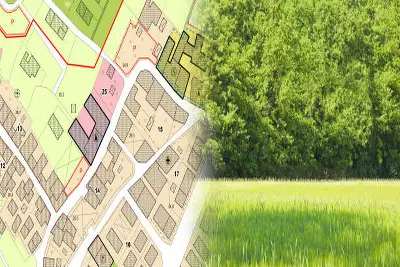Intermediate Monitoring and Evaluation (M&E) Program
This Intermediate Monitoring and Evaluation (M&E) Program is designed to enhance participants' knowledge and skills in monitoring and evaluation practices. The curriculum focuses on essential M&E concepts, methodologies, and tools, providing hands-on experience through practical exercises and case studies.
Virtual classes | 12 Week(s) | FEE: Ksh 120000 / USD 1100
Application Deadline: 19th November 2025

Want to upskill?
Enroll today in our Intermediate Monitoring and Evaluation (M&E) Program to elevate and expand your expertise.
Program Fee
120000 / USD 1100
Duration
0 Week(s)
Study Mode
Virtual classes
Introduction
Welcome to the Intermediate Monitoring and Evaluation (M&E) Program—an empowering experience crafted to deepen your understanding and application of M&E principles in the field. As you progress through this program, you will uncover the essential tools and methodologies that enable professionals to effectively monitor and evaluate development projects across various sectors.
In this engaging curriculum, you will not only acquire theoretical knowledge but also gain practical skills that will empower you to address real-world challenges in M&E. With a strong emphasis on participatory approaches and ethical considerations, you will learn how to design and implement effective M&E systems that support informed decision-making and promote accountability.
Through a blend of case studies, hands-on exercises, and collaborative learning, you will be prepared to apply advanced M&E techniques in your specific context. By the end of this program, you will have the expertise and confidence to enhance project outcomes and drive continuous improvement in your organization.
Application Process
Register
Submit your registration by filling in the form online.
Make Payments
Receive Invoice upon registration and make payments.
Join program
Choose a mode of study and attend course.
Program Prerequisites
Participants should have a foundational understanding of monitoring and evaluation concepts and practices, along with some prior experience in M&E implementation.

Program Modules
- Understanding the purpose and importance of M&E
- Key M&E concepts and terminology
- Overview of M&E frameworks and systems
- Case Study: Reviewing a successful M&E framework in action.
- Hands-on Exercise: Identifying M&E components in a project proposal.
- Steps in the evaluation process
- Designing evaluation questions and objectives
- Planning and conducting evaluations
- Case Study: Analyzing the evaluation process of a community project.
- Hands-on Exercise: Developing evaluation questions for a selected project.
- Defining the scope of the evaluation
- Stakeholder analysis and engagement
- Creating a logical framework for evaluation
- Case Study: Reviewing the scoping process of a large-scale evaluation.
- Hands-on Exercise: Conducting a stakeholder analysis for a project.
- Overview of evaluation theories and frameworks
- Different evaluation approaches (formative, summative, developmental)
- Selecting appropriate evaluation approaches for specific contexts
- Case Study: Comparing different evaluation approaches used in a health program.
- Hands-on Exercise: Creating a theory of change for an evaluation project.
- Understanding various evaluation designs (qualitative, quantitative, mixed methods)
- Data collection methods and tools
- Introduction to data analysis techniques
- Case Study: Analyzing data collection methods used in a program evaluation.
- Hands-on Exercise: Designing a data collection plan for an evaluation.
- Understanding the influence of context on evaluations
- Identifying contextual factors that impact M&E
- Tailoring evaluations to specific settings and cultures
- Case Study: Evaluating a project in a culturally diverse environment.
- Hands-on Exercise: Assessing contextual factors for a given evaluation scenario.
- Common monitoring techniques and methodologies
- Utilizing technology for effective monitoring
- Developing monitoring plans and frameworks
- Case Study: Evaluating a monitoring system implemented in a nonprofit organization.
- Hands-on Exercise: Creating a monitoring plan for a specific project.
- Developing effective M&E indicators
- Setting SMART targets for M&E
- Measuring progress and performance through indicators
- Case Study: Analyzing the effectiveness of indicators in a project evaluation.
- Hands-on Exercise: Creating a set of indicators for a chosen project.
- Data management principles and best practices
- Ensuring data quality and integrity
- Data storage, security, and accessibility
- Case Study: Reviewing a data management strategy used in an evaluation.
- Hands-on Exercise: Developing a data management plan for an evaluation.
- Promoting accountability through M&E practices
- Integrating learning into M&E processes
- Techniques for fostering organizational learning
- Case Study: Examining how M&E practices enhanced accountability in a project.
- Hands-on Exercise: Developing a learning agenda based on M&E findings.
- Understanding gender considerations in M&E
- Tools for measuring gender equity and inclusion
- Integrating gender perspectives into evaluation practices
- Case Study: Evaluating a gender-focused program using M&E frameworks.
- Hands-on Exercise: Designing a gender-sensitive M&E plan for a project.
- M&E in education programs
- M&E in health programs
- M&E in agricultural programs
- Case Study: Review sector-specific M&E practices and evaluate the effectiveness of M&E frameworks in education, health, or agriculture projects.
- M&E in emergency response programs
- Challenges in conducting M&E in conflict zones
- Using real-time data for crisis management
- Hands-on Exercise: Develop a real-time M&E plan for a crisis response initiative, considering the challenges of operating in a conflict zone.
Certifications
Upon successful course completion, participants will be awarded a certificate of program completion from Indepth Research Institute.

The Program also Includes
Program Delivery
Delivered via video lectures in form of zoom and google meet.
Real World Examples
Delivered through a combination of video and live online lectures.
Hands on Experience
Learn through individual assignments and feedback.
Debrief of Learning
A combination of recorded and live video lectures.
Tech Stack

Upcoming Application Deadline
Admissions are closed once the requisite number of participants enroll for the upcoming cohort. Apply early to secure your seat.
Deadline: 19 Nov 2025
Program Fees
Fees: 120000 / USD 1100
We accept
















